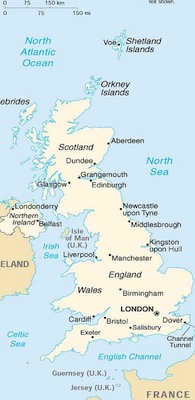For two alliances with a largely identical membership list, NATO and the European Union have a long history of struggling with joint policy planning. 22 NATO members are also members of the EU, though with the Brexit, it’s soon to be 21.
 That’s casting a rather big pall over the upcoming EU and NATO summits in the coming days, with NATO hopes of bolstering their ties to the EU bloc, particularly as it relates to their anti-Russia policy along the border, is looking a lot different with the prospect of Britain withholding involvement.
That’s casting a rather big pall over the upcoming EU and NATO summits in the coming days, with NATO hopes of bolstering their ties to the EU bloc, particularly as it relates to their anti-Russia policy along the border, is looking a lot different with the prospect of Britain withholding involvement.
Britain is the European Union’s largest military spender, and has been leading joint EU naval operations both in the Mediterranean and along the Horn of Africa, and was also committed to the big NATO buildup in Eastern Europe.
Those naval operations might need some revision, and while it doesn’t appear that the NATO buildup is in serious risk, Britain isn’t leaving NATO after all, speculation that an independent Britain might start cutting military spending is throwing their long-term intervention in doubt.
It might not even be entirely voluntary. Potential secession from Scotland and Northern Ireland would be a big shift to the United Kingdom as a whole, and will virtually oblige the remnants of Britain to cut their bottom line figure, if not their percentage of expenditure.
The US, which has been leading the NATO charge against Russia, has also depended on Britain to be their proxy in the EU in pushing them toward a more aggressive strategy, with Britain pushing heavily for punitive sanctions against the Russians. With central European states already resisting those sanctions, Britain’s exit might well mean an end to the EU’s economic warfare.





May 29, 2016 BREXIT End the EU, a CIA Covert Operation
Remain” or “Leave”? What does the UK’s EU Referendum—scheduled 23rd June—really amount to? Is it simply the opportunity for UK citizens to decide if Britain should stay in the European Union? Or is it something of greater significance, with broader and more serious implications? And just what is this thing called the EU anyway?
https://youtu.be/9otn_5LVQq8
Sep 19, 2000 Euro-federalists financed by US spy chiefs
The documents confirm suspicions voiced at the time that America was working aggressively behind the scenes to push Britain into a European state. One memorandum, dated July 26, 1950, gives instructions for a campaign to promote a fully fledged European parliament.
http://www.telegraph.co.uk/news/worldnews/europe/1356047/Euro-federalists-financed-by-US-spy-chiefs.html
To rule the waves Britannia needs a large navy.
Or much smaller waves.
This sounds too good to be true